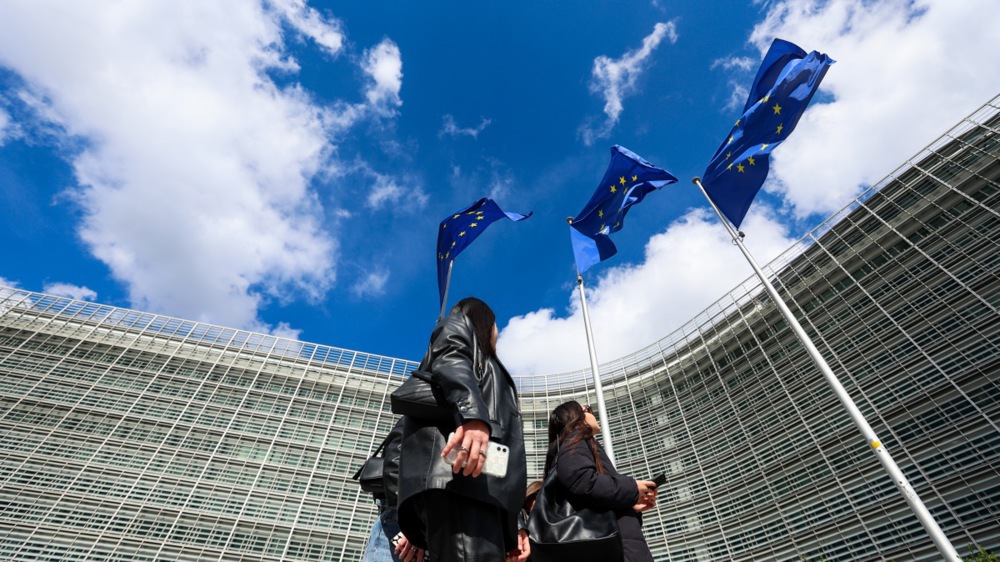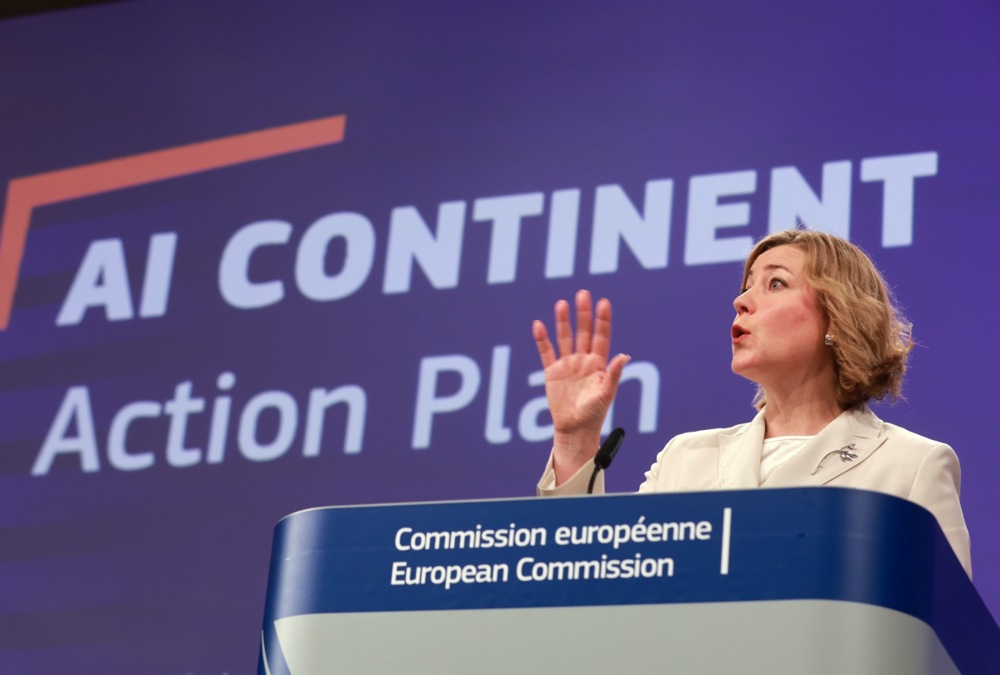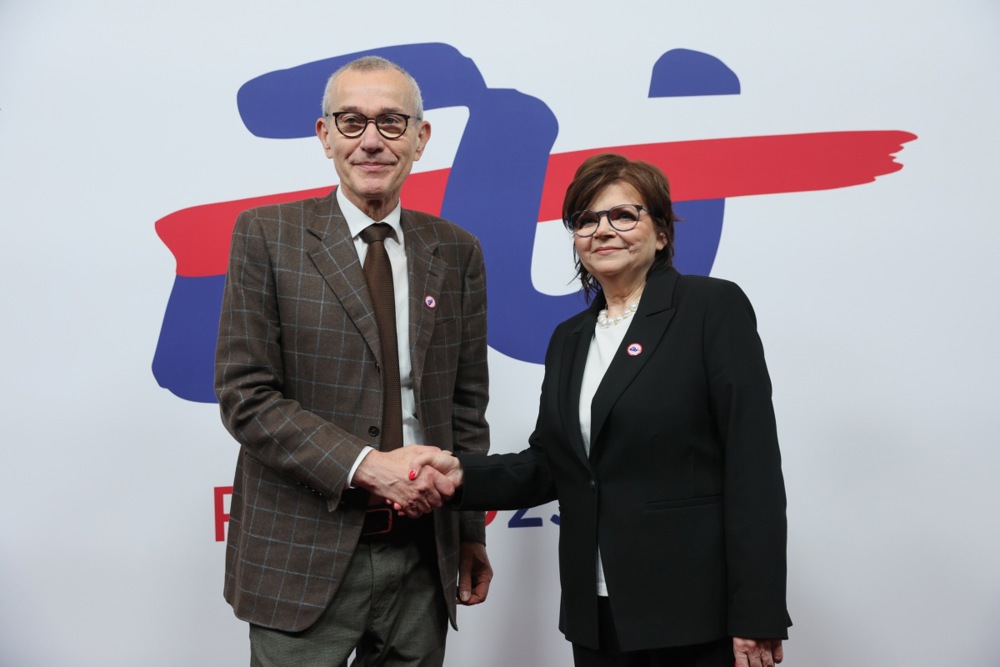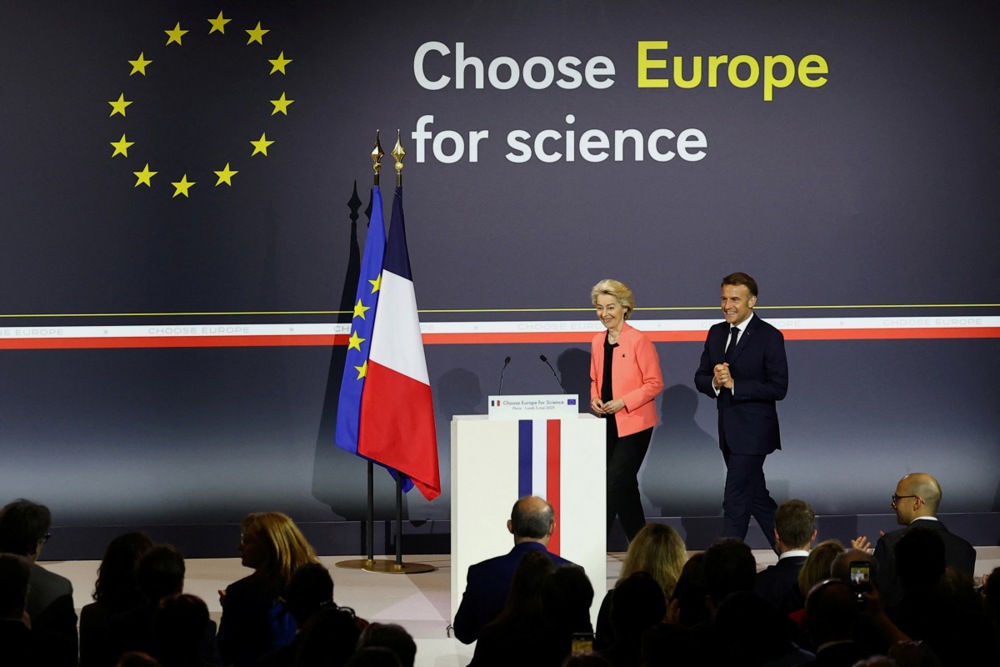Industry leaders have called for technical cooperation in AI to be shielded from escalating geopolitical tensions and politicised trade disputes, especially between the EU and the US, in a bid to build trust through standards, not trade deals.
As the European Commission seeks closer AI cooperation with the US to avoid trade tensions, European business leaders, at a conference in Brussels on May 13, warned that technical rules, not political deals, should shape the future for artificial intelligence. They said that avoiding turning AI into a geopolitical battleground is crucial to keep Europe competitive in this sector, where it is already lagging behind.
“Tariffs can change from one day to the other, not standards”, said Christoph Winterhalter, head of Germany’s standardisation body DIN at a conference which brought together voices from industry, compliance, and accreditation — sectors that deal directly with how technology is tested, certified and allowed onto the market.
Several speakers agreed that standards could not be changed overnight because they were built to last across countries, sectors and years.
“To standardise something, people need to trust it — and that takes time,” Winterhalter said. “What makes it complex is the clarity of requirements. For smaller companies, it’s costly and time-consuming.”
That burden is a growing concern. The European Investment Bank (EIB) found in its latest report that 86 per cent of EU firms employ staff just to deal with regulatory compliance, with costs reaching 2.5 per cent of turnover for small businesses – more than half of their spend on energy.
“Everyone needs to read documents and translate them,” Winterhalter said. “It’s inefficient. We need to automate those processes.”
Maureen Logghe, President of European Accreditation, agreed: “Accreditation toolboxes are stable — and that’s a strength. They allow us to adapt to fast-changing technologies like AI without losing safety.”
The European Commission is currently pushing for closer AI cooperation with the US — a move meant to reduce the risk of new tariffs. “We are allies and should have the same interest,” EU Trade Commissioner Maroš Šefčovič said earlier in May, citing joint ambitions to build “AI factories”.
But for many in industry, the danger is that politics will get in the way of long-term trust.
“We’ve been trading since the beginning of humanity and we won’t stop,” said Omar Dhahrer from Digitaleurope, the trade association representing digitally transforming industries in the EU.
“But we need a stable and trustworthy system to do that efficiently. That means focusing on clear standards, not just trade agreements.”
To stay competitive, industry leaders said the EU should focus on fixing its own system first — not just reacting to US moves.
“Standards are the bed of innovation,” Dhahrer said. “We have political goals to meet, and those can be subsidised. But the system should be based on science, not on politics.”
“When it comes to AI, if you ask the wrong questions or connect the data in the wrong way, you’ll get bad answers,” added Jennifer Scanlon, vice-president of the TIC Council, which hosted the event.
“You can’t outsource human judgment. We need good data models — and that starts with standardisation.”
Companies face growing pressure to comply with reporting and data rules. Winterhalter criticised the current system as too slow and manual. “Everyone needs to read documents and translate them,” he said. “It’s inefficient. We need to automate those processes.”
The European Investment Bank (EIB) echoed that concern in its latest report. Only a small share of European firms are integrating AI into their operations, despite clear productivity benefits. “We need to accelerate investment in Europe,” said Debora Revoltella, Chief Economist at the EIB, during a Brussels conference on the report, earlier in May.





